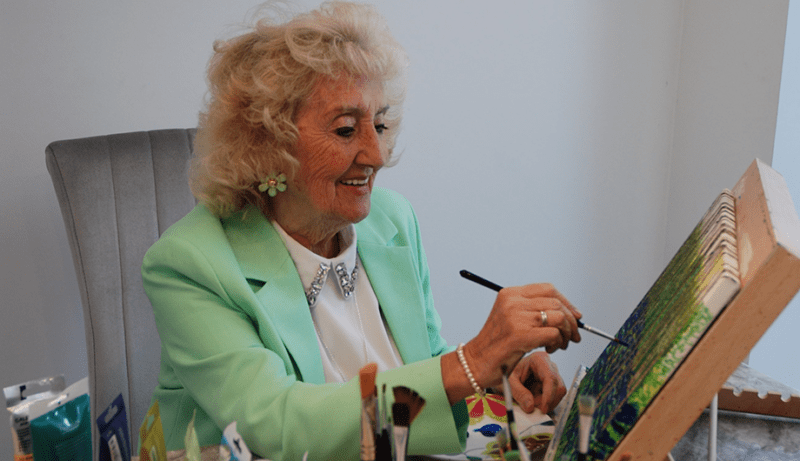
Watching my husband change before my eyes
Prabitha shares her experience of caring for her late husband, Narayan Gopala, who lived with vascular dementia and died in 2024.
Caring for a person with dementia can be physically and mentally demanding, so it’s vital that you also look after yourself. Here’s how you can stay well, maintain healthy relationships, and get the support you need.
Many people who have a family member with dementia find themselves in the role of full-time or part-time carer. And when you are looking after someone around the clock, you might find it difficult to think about your own needs, get enough rest, or take part in activities you enjoy.
But you may not be able to continue caring for the person with dementia if you neglect your health, or if you don’t have enough support or time to recharge your batteries.
It’s a bit like putting on your own oxygen mask before helping someone else during a flight emergency: by looking after yourself first, you’re more likely to have the strength to look after the person you care for.
It’s important not to ignore your own health needs.
Niggling pains or feelings of anxiety or depression, for example, might seem like the least of your worries.
But if you are having physical or mental health symptoms, you should visit your GP so any illnesses or conditions can be properly diagnosed and treated.
Other tips to keep you healthy include:
As the person’s dementia progresses, you may find that your caring role overtakes your relationship with them as a spouse, family member or friend. But while your relationship will change, it can still bring you both enjoyment.
Rather than focusing only on the care you have to provide, try to find activities that you can still do together to strengthen your connection.
You could try:
You may feel like you have no time to spend with other family members and friends, or that having a life outside of your caring responsibilities is unimportant or even selfish.
However, it’s really important to ensure you stay in contact with friends and family.
This can give you opportunities to talk to other people about what you’re going through and allow them to support you, as well as giving you vital time out to enjoy each other’s company.
Keeping up with your other relationships and activities that bring you pleasure means that when your caring responsibilities change or stop – for example, if the person with dementia goes into a care home and no longer needs as much care from you – you still have things to enjoy and people to spend time with.
For any questions or concerns about looking after yourself as a carer or any other aspect of dementia, you can contact our free Dementia Helpline on 0800 888 6678 (Monday-Friday 9am-9pm, Saturday-Sunday 9am-5pm, every day except 25th December), email helpline@dementiauk.org or you can pre-book a phone or video call at a time that suits you.
Our virtual clinics give you the chance to discuss any questions or concerns with a dementia specialist Admiral Nurse by phone or video call, at a time that suits you.

Prabitha shares her experience of caring for her late husband, Narayan Gopala, who lived with vascular dementia and died in 2024.

Chloe shares her experience of being a young carer for her Mum, who was diagnosed with frontotemporal dementia at 47, and died aged 51.

Since being diagnosed with Alzheimer’s disease in 2019, Sylvia has found a new purpose in expressing her feelings through painting.